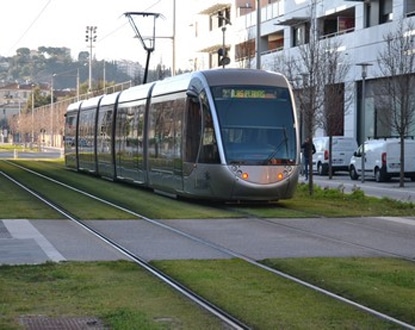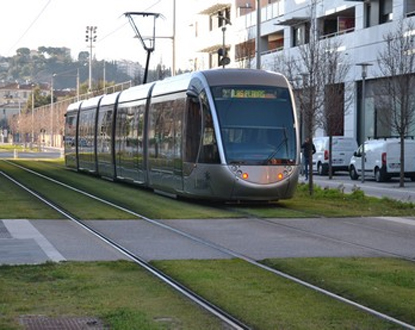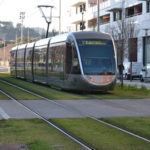For Patrick Allemand, the leader of the Nice opposition: “The debate on Nice’s public transport needs to be freed from the underground, and that is why the debate ‘against or for this underground’ is not a left-right debate! There is nothing ideological about it. An underground is neither right nor left. The purpose of the petition is to free the debate on the future of the public transport network in Nice.”
 Until September 30, 2013, at the initiative of the ‘Changer d’Ère’ group, signature points are available in all neighborhoods of the city. Patrick Allemand hopes to reach the milestone of 15,000 signatures, which he believes will give him the necessary strength to advance his position.
Until September 30, 2013, at the initiative of the ‘Changer d’Ère’ group, signature points are available in all neighborhoods of the city. Patrick Allemand hopes to reach the milestone of 15,000 signatures, which he believes will give him the necessary strength to advance his position.
“The City of Nice and the Métropole have, it seems, buried the issue of public transport in the ‘underground’: Move along, there’s nothing to see in terms of public transport in Nice!
The issue of public transport is an essential challenge. Like other major cities in France, Nice should be able to benefit, as soon as possible, from a true tram network, connecting different neighborhoods via several lines covering a few dozen kilometers. For the Mayor, the essential is to connect the Port to the Airport as quickly as possible, with a 3.2 km underground line from Francois Grosso to the Port, that is to say, a metro!!”
We have already highlighted the disadvantages of this underground: its financial cost (300 million euros), geological risks and uncertainties, the aesthetic impact on the Port, on Durandy and Alsace-Lorraine gardens where Metram exits will be constructed, whose nuisances have not yet been measured, because it will require digging excavations nearly 40 meters in radius and over 20 meters deep.
Beyond these disadvantages, we believe that a tramway network is much more than a simple mobility solution between two points. It is a genuine urban reorganization, which allows a city to be energized by facilitating economic and social exchanges between all neighborhoods. A tramway network also offers new opportunities for housing policy.”
As an example, Bordeaux, which is equipped with a tramway network of 3 lines, covering nearly 40 km, with 18 park-and-rides, has launched along tramway axes a vast operation of 50,000 new housing units!
On the contrary, Nice, with only one 9.5 km line and considering a second line of 11.4 km, of which 3.2 km will be underground, is unable to offer large-scale solutions to the housing crisis that severely affects Nice households and businesses. An extended tramway network, going from La Trinité to the Plaine du Var, would offer new solutions in terms of housing and thus facilitate business life and economic development.
It is also worth highlighting that the service to the Plaine du Var, Nice Méridia, and the Grand Stadium has become an economic priority, probably underestimated at the time of choosing the underground. Everyone knows it (and it will become evident from the inauguration): the Grand Stadium must be served by a tramway line to avoid the city’s blockage during each event held there. But there is another imperative, probably more important although less emphasized, which is the service of Nice Méridia. However, constructing this line 3 will not be possible if we have to finance the additional cost of the line 2 underground.
Behind this underground, however, are two competing visions of our city’s urban development. This debate can be reopened calmly, without suggesting a new delay of the tram. Nothing prevents launching the works of L2 on the surface from the Airport to Francois Grosso, while taking the time to analyze the city’s priorities: the 300 million euro underground or other surface lines, with a city center crossing route yet to be determined. There are various possible solutions. They must be put on the table, presented to the people of Nice, and discussed. The question of the city center crossing by L2 should not be used as a pretext to hold hostage the essential debate on the priorities of Nice’s public transport network.
The financial situation will not allow everything to be done at once. Choices will have to be made.”
Patrick Allemand
Municipal and metropolitan councilor, president of the ‘Changer d’Ère’ group



